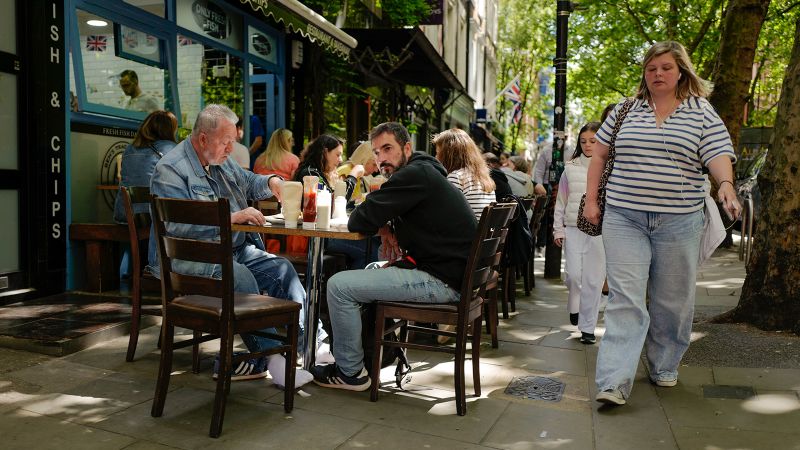In a recent report, UK inflation has slowed to 2% in May, reaching the Bank of England’s target for the first time in almost three years with a significant decrease in food price rises. This development positions the United Kingdom ahead of most G7 economies in managing inflation to benefit households and businesses.
However, the data also reveals that prices of services like haircuts, hotels, and restaurants are still increasing too rapidly, indicating that the Bank of England may not follow the European Central Bank in reducing interest rates during their upcoming meeting. Analysts suggest that a rate cut in August is now less likely due to lingering high services inflation, which was at 5.7% last month.
Zara Noakes, a global market analyst at JPMorgan Asset Management, emphasized that the current inflation numbers make a rate cut from the Bank of England unlikely in the near future. Another economist, Jake Finney from PwC UK, warned that consumer prices have risen by 20% since the last time inflation hit its target in July 2021, possibly leading to a return above the 2% mark if prices keep increasing at the current rate.
Despite the progress in tackling inflation, many UK residents are still struggling to manage living costs. This issue is expected to be a key concern for voters when they elect a new government on July 4, with the cost-of-living crisis showing no signs of abating anytime soon. As the UK grapples with ongoing economic challenges, the possibility of an interest rate cut in August remains uncertain, echoing similar concerns in the United States and Europe where inflation continues to persist stubbornly.












